Search Results
Showing results 61 to 80 of 94
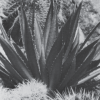
Cactus Wheel
Source Institutions
In this outdoor activity/field trip, learners explore the concept of population density.
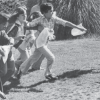
Population Game
Source Institutions
In this outdoor game, learners simulate a herd of deer trying to survive in an area called the "home range." Learners explore the concept of "carrying capacity"—what size population of an organism can
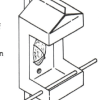
Bird Feeder
Source Institutions
In this outdoor activity, learners construct bird feeders and set them up at to investigate bird behavior for one or two weeks. Multiple feeder designs are suggested.
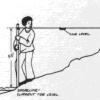
Beach Zonation
Source Institutions
In this outdoor, ocean-side activity, learners investigate the distribution of organisms in the upper region of the intertidal zone.
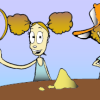
Detectives de arena
Source Institutions
¡En esta tira cómica, Mateo y Cientina son detectives! Ellos usan sus destrezas investigativas para identificar de dónde provinieron algunas muestras de arena.
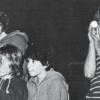
Night Eyes
Source Institutions
In this outdoor, night-time activity, learners discover how to spot eye-shine (reflection of light from an animal's eyes) by using a flashlight to play a simulation game.
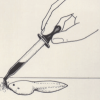
Water Breathers
Source Institutions
In this activity and/or field trip, learners investigate the water currents that aquatic animals create when they breathe, feed, and propel themselves through water.
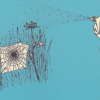
Web Weavers
Source Institutions
In this outdoor science/art activity, learners investigate spider webs by using string to create their own spider webs.

Wintergreen
Source Institutions
In this outdoor, winter activity, learners find living green plants under the snow and determine the light and temperature conditions around the plants.
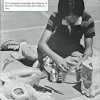
A Better Fly Trap
Source Institutions
In this activity, learners observe fly behavior and then build a flytrap.
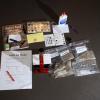
Sand Activity
Source Institutions
In this activity, learners observe mixtures of sand samples glued to note cards, and consider how sand can differ in size, shape, and color, and where it comes from.
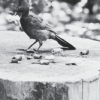
Jay Play
Source Institutions
In this outdoor activity, learners find out the color of food that jays prefer and then try to change the birds' preference by altering the taste of the food with salt.
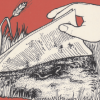
Junk-in-the-Box
Source Institutions
In this outdoor activity, learners explore how a surprising number of animals use human-made litter, such as cans and crumpled paper, to find food and shelter in their environment.
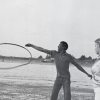
Clam Hooping
Source Institutions
In this two-part outdoor activity, learners conduct a population census of squirting clams on a beach or mudflat, and investigate the clams' natural history.
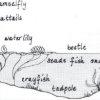
Habitats of the Pond
Source Institutions
In this outdoor activity/field trip, learners locate and study plants and animals in several freshwater pond habitats.
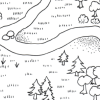
Mapping a Study Site
Source Institutions
In this outdoor activity, learners use a mapping technique to become oriented to the major features of an outdoor site.
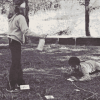
Silent Stalking
Source Institutions
In this outdoor game, learners role play predator and prey to explore the importance of keen hearing and silent stalking skills in the animal world.
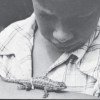
Leapin' Lizards
Source Institutions
In this outdoor activity, learners first explore lizard feeding behavior by creating a "lizard rig" to dangle different objects in front of live lizards and see which objects the lizards try to bite.
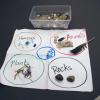
Beach Buckets
Source Institutions
In this activity, learners explore a bucket of sand and beach objects.
Hexagon Hunt
Source Institutions
This activity gets learners looking at 6-sided shapes in nature, including the cells of a beehive, as well as other shapes.
